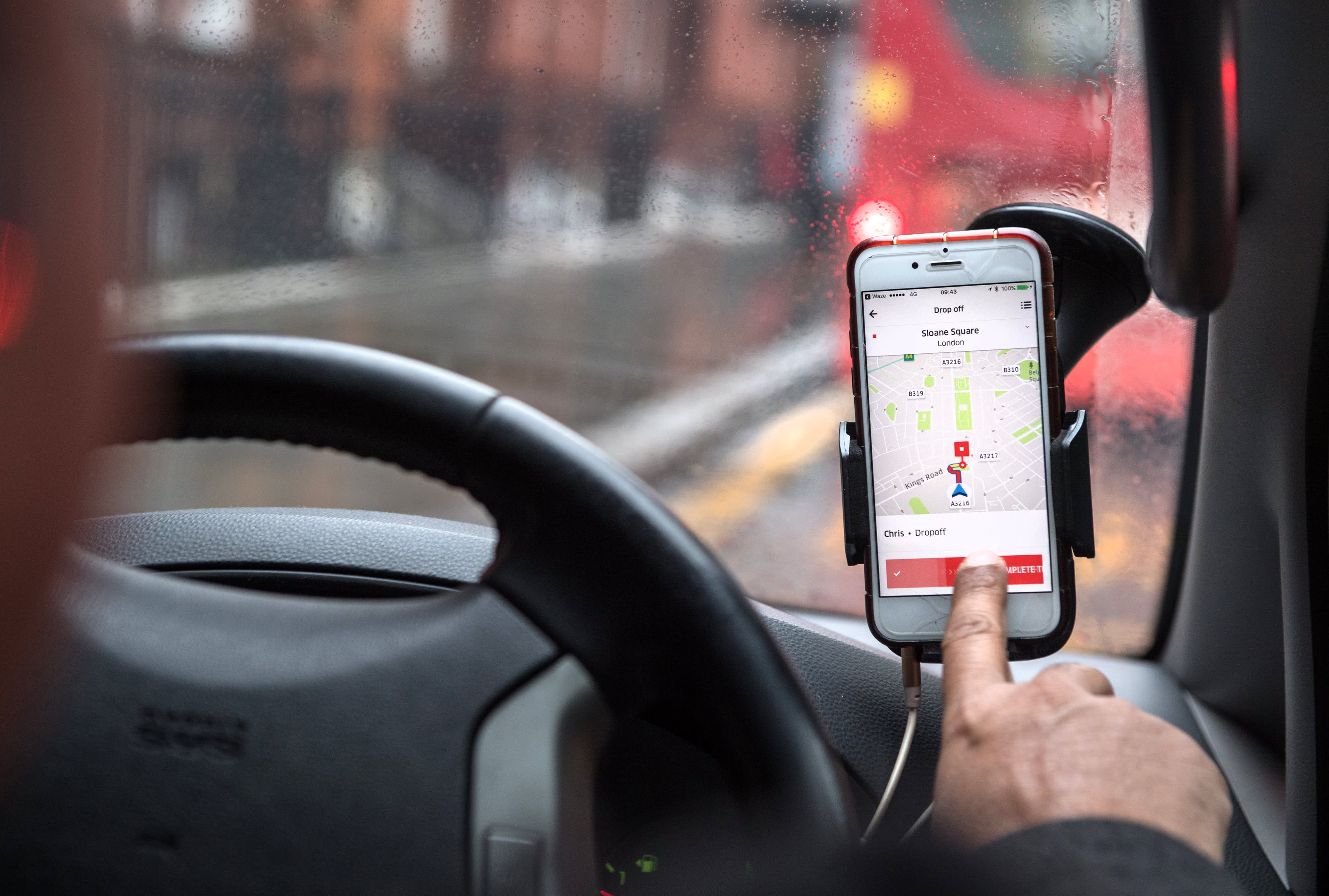Lyft falls after court says gig worker push is unconstitutional

A driver uses the Uber app to drop off a passenger in London.
Chris J. Ratcliffe | Bloomberg via Getty Images
Shares of Lyft traded lower Monday after a California court ruled that Prop 22, a ballot measure that exempted gig workers from state labor law, was unconstitutional.
Lyft was down about 1% in midmorning trading, while Uber was up less than 1%. Shares of both were down in the premarket.
Alameda County Superior Court Judge Frank Roesch wrote in a ruling late Friday that Proposition 22 is unconstitutional as “it limits the power of a future Legislature to define app-based drivers as workers subject to workers’ compensation law.” That makes the entire ballot measure “unenforceable.”
California voters approved Proposition 22 by a majority vote in November. The ballot measure effectively exempted several gig economy companies from the state’s recently enacted law, Assembly Bill 5, which had aimed to make their workers into full-time employees.
Prop 22 proposed workers for app-based food delivery and ride-sharing companies should remain contractors, and be entitled to certain benefits and protections, like minimum earnings.
The move is a blow to gig economy companies, including Lyft, Uber, Instacart and DoorDash, which spent more than $200 million to support the ballot in an effort to maintain their current business models. Classifying drivers as contractors allows the companies to avoid the costly benefits associated with employment, such as unemployment insurance.
A coalition representing the companies said it plans to appeal. The firms have started to fund a measure to put a similar proposal before Massachusetts voters next year.
— CNBC’s Lauren Feiner contributed to this report.